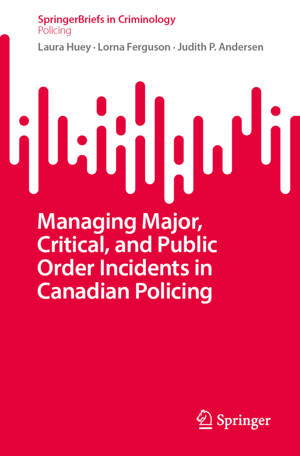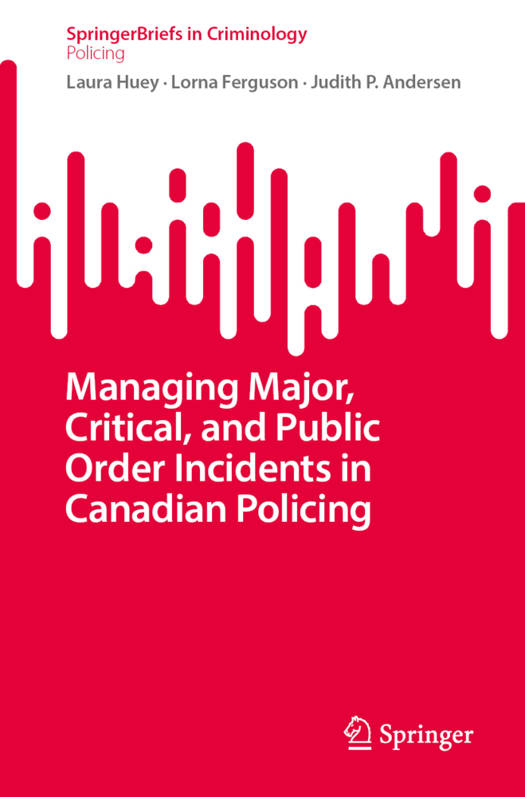
Bedankt voor het vertrouwen het afgelopen jaar! Om jou te bedanken bieden we GRATIS verzending (in België) aan op alles gedurende de hele maand januari.
- Afhalen na 1 uur in een winkel met voorraad
- In januari gratis thuislevering in België
- Ruim aanbod met 7 miljoen producten
Bedankt voor het vertrouwen het afgelopen jaar! Om jou te bedanken bieden we GRATIS verzending (in België) aan op alles gedurende de hele maand januari.
- Afhalen na 1 uur in een winkel met voorraad
- In januari gratis thuislevering in België
- Ruim aanbod met 7 miljoen producten
Zoeken
Managing Major, Critical, and Public Order Incidents in Canadian Policing
Laura Huey, Lorna Ferguson, Judith P Andersen
€ 53,45
+ 106 punten
Omschrijving
This brief examines Canadian police incident command response teams' process of decision-making during major, critical, and public order events. It explores the different factors that influence how police Incident Commanders (ICs) approach their work, and demystifies this work and how it is organized and operationalized. The chapters in this book detail: - The basics of how incident command is structured in Canada. - How incident command models in Canada relate to those in other countries. - Overviews of the training and responsibilities for different incident command types. - First-hand accounts of how ICs approach their work and feel about the decisions they have to make. This book is ideal for practitioners and policymakers who are interested in how this mode of policing works. It is also suitable for policing students in upper-level criminology and criminal justice courses curious about this potential line of work.
Specificaties
Betrokkenen
- Auteur(s):
- Uitgeverij:
Inhoud
- Aantal bladzijden:
- 68
- Taal:
- Engels
- Reeks:
Eigenschappen
- Productcode (EAN):
- 9783031857089
- Verschijningsdatum:
- 15/03/2025
- Uitvoering:
- Paperback
- Formaat:
- Trade paperback (VS)
- Afmetingen:
- 156 mm x 234 mm
- Gewicht:
- 122 g

Alleen bij Standaard Boekhandel
+ 106 punten op je klantenkaart van Standaard Boekhandel
Beoordelingen
We publiceren alleen reviews die voldoen aan de voorwaarden voor reviews. Bekijk onze voorwaarden voor reviews.









